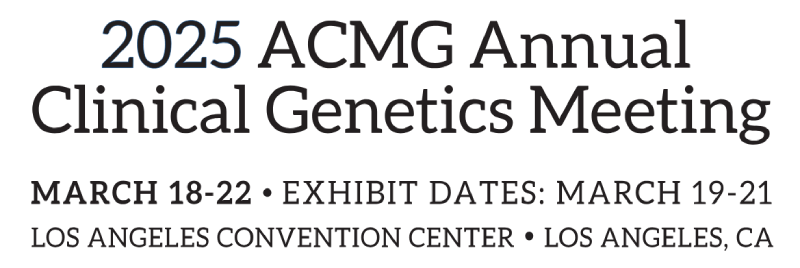Genetics in Some Arabic Countries: A Journey of Discoveries, Advances, and Struggles
19 Mar 2025
Venue:
Los Angeles Convention Centre
Meeting Room:
501 ABC
Health Services and Implementation
-
Accredited:
- Accredited
-
Primary Categories:
- Health services and Implementation
-
Secondary Categories:
- Health services and Implementation
Many of us had cared for patients of families coming from Arabic speaking Middle Eastern countries, such as Saudi Arabia, United Arab Emirates, and Qatar. Those countries are within proximity to each other’s not only in distance, culture, and language, but also, as we would expect, with much resemblance genetically. Between the different countries, there is a wide variability in the ability to provide genetic services, run diagnostic and research tests, and also in their infrastructure to support genetic testing and genetic services.
This session aims to highlight much of this genetically rich region. The session aims to discuss a history of progress of genetic knowledge, and their way of achieving advances in research along with much of the struggles that may have taken place along the way. Understanding the high rates of consanguinity in the region, and its accompanying discoveries of countless number of genes and founder variants have been added tremendous effects to the genetics field.
One acknowledged mission of the American College of Medical Genetics (ACMG), is to expand genetic services in other countries, and the International Outreach and Engagement Committee is a workgroup dedicated to this mission. In light of this mission, it is of utmost importance to learn the current status, current ability, and the challenges that some countries could be dealing with, and here we describe examples from a few Arabic Middle Eastern countries to review.
As a global effort, genomes of populations of various backgrounds are in much need like we all appreciate. This session aims to widen radars of scientists and clinical geneticists to regions in the world that they are far less familiar with. This could help build further collaborations, and by bringing patients to scientists worldwide we aim to better understand a long way of mysteries that we have yet to learn, along the genetic road.
This session aims to highlight much of this genetically rich region. The session aims to discuss a history of progress of genetic knowledge, and their way of achieving advances in research along with much of the struggles that may have taken place along the way. Understanding the high rates of consanguinity in the region, and its accompanying discoveries of countless number of genes and founder variants have been added tremendous effects to the genetics field.
One acknowledged mission of the American College of Medical Genetics (ACMG), is to expand genetic services in other countries, and the International Outreach and Engagement Committee is a workgroup dedicated to this mission. In light of this mission, it is of utmost importance to learn the current status, current ability, and the challenges that some countries could be dealing with, and here we describe examples from a few Arabic Middle Eastern countries to review.
As a global effort, genomes of populations of various backgrounds are in much need like we all appreciate. This session aims to widen radars of scientists and clinical geneticists to regions in the world that they are far less familiar with. This could help build further collaborations, and by bringing patients to scientists worldwide we aim to better understand a long way of mysteries that we have yet to learn, along the genetic road.
Learning Objectives
- Appreciate the difference between founder variants in consanguineous vs non-consanguineous populations
- Restate the impact of Arab founder variants in improving the sensitivity and specific of clinical genome reporting
- Explore the utility of implementing new approaches or technologies for rare diseases in the Middle East
- Explain the utility of clinical genomic datasets for novel gene/variation discovery
- Explore the clinical utility of a population-scale approach utilizing whole genome in the Qatari population
Agenda
-
 A Trip to Some Arabic Middle Eastern Countries, Overview, Current State and Challenges1:30 PM – 1:45 PM
A Trip to Some Arabic Middle Eastern Countries, Overview, Current State and Challenges1:30 PM – 1:45 PM -
ACMG International Reach and Engagement Committee1:30 PM – 1:35 PM
-
 Arab Founder Variants: Catalysts of Precision Medicine and Beyond1:45 PM – 2:05 PM
Arab Founder Variants: Catalysts of Precision Medicine and Beyond1:45 PM – 2:05 PM -
 Closing the Diagnostic Gap for Rare Diseases in Some Middle Eastern countries2:05 PM – 2:25 PM
Closing the Diagnostic Gap for Rare Diseases in Some Middle Eastern countries2:05 PM – 2:25 PM -
 Deriving Clinical Insights from Large Founder Biobanks – The Qatari Experience2:25 PM – 2:45 PM
Deriving Clinical Insights from Large Founder Biobanks – The Qatari Experience2:25 PM – 2:45 PM -
Panel DiscussionPanel Discussion and Q&A2:45 PM – 3:00 PM
-





)
)
)
)
)
)
)
)
)
)
)
)
)
)
)
)
)
)
)
)